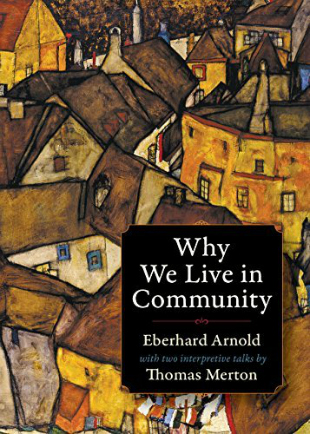Eberhard Arnold (1883-1935) was a prominent pacifist theologian, pastor, and author in Germany during the period before World War II. In 1920, leaving wealth, security, and career behind, he along with his wife and five children left Berlin for Sannerz, a village in central Germany where he set up a small community of families and singles.
Despite persecution by the Nazis, the continuing challenges of World War II and periods of internal struggles, the community survived. The Bruderhof ("Place of Brothers") now has nearly two dozen communities around the world. They have no private property, share everything in common, and meet daily for meals, prayer, worship, singing, and decision making.
"We must live in community, because all life created by God exists in a communal order and works toward community," writes Arnold in this direct and eloquent expression of his philosophy. Human beings come to live and work together, but God — the Source of all life and activity — provides the life-giving energy that enables individuals to bond together. This bonding benefits not only those inside community but also anyone denigrated by mainstream society; those who live and thrive in community stand in solidarity with "the 'have-nots,' with the underprivileged, and with the degraded and oppressed."
Arnold ups the ante when he writes: "We must live in community because the struggle of life against death demands united ranks of souls and bodies that can be mobilized wherever death threatens life." Close your eyes and imagine some of the places where death is threatening life. Make a vow right now to be a healing source of caring and sharing to those squaring off against death.
In addition to a foreword by Basil Pennington, the publishers include two interpretive talks by Thomas Merton on Arnold's text. In one passage the great Catholic mystic and prolific writer comments on the yin and the yang of human nature:
"We are and we are not communal people. It is taken for granted that we are all really sociable. But we are and we aren't. We are also weak and selfish, and there is in this struggle between trust and mistrust, where we all believe and don't believe. We trust some people and we distrust other people. We are, in other words, full of ambivalence, and we must take this into account. … You cannot possibly live a religious life realistically unless you realize that this is going on all the time."
